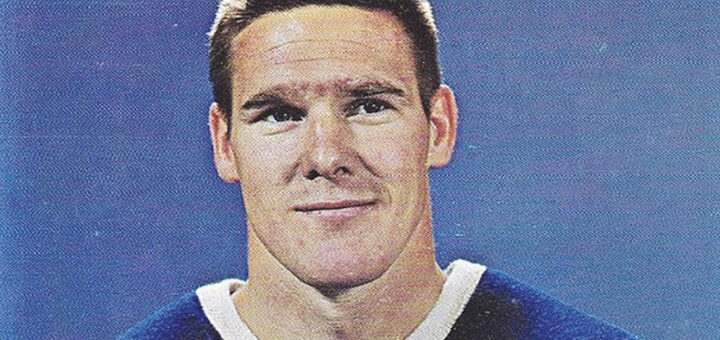The legacy of Tim Horton

Matthew Hillier, Staff Writer |
The NHL is not what it used to be.
Back in “the old days” there were no million-dollar contracts, no high-profile trades and no lucrative sponsorships. Playing hockey at the professional level would earn you a salary of around 15,000 to 20,000 in the 1950s to 1960s. There was a potential bonus of around 30,000 if you played extraordinarily well but that was reserved for the best of the best.
Simply put, there weren’t as many people watching hockey and there weren’t as many ways to watch the games themselves. Television was just becoming popularised at the time and most broadcasters didn’t want to invest in hockey as a sport until cameras and broadcasting itself became more affordable and easier to accomplish.
This era of hockey history is where a legendary player and household Canadian name comes in. He unfortunately passed away 50 years ago on February 21st. His legacy is a reminder of his massive impact on Canadian culture and the game of hockey itself.
If you don’t know his name already, drive around Calgary for around five minutes and you will see his name on one of the hundreds of his restaurants all over the city.
Tim Horton was born in Cochrane, Ontario to Ethel May and Aaron Oakley Horton, a Railway mechanic. Tim had one brother and a lot to prove.
He grew up playing hockey in his hometown in Cochrane and later in a mining community in Timmins, in Northern Ontario. There he honed his skills and eventually caught the eye of a recruiter for the Toronto Maple Leafs and was signed to play with them in 1948.
He was also attending St. Michael’s College at the time and eventually was signed to play with the barn hockey team of the Pittsburgh Hornets of the American Hockey League. Under their leadership, he would play his first official NHL game on March 26, 1950.
His next NHL game was two years later in 1952. In this era after his NHL debut, he quickly proved himself. His incredible grace under pressure and incredible strength and stamina would make him a formidable and not to mention sturdy defenseman. His signature move was a massive bear hug that stopped players in their tracks and was generally regarded as the strongest man in the game at the time.
His career at this point skyrocketed eventually he would play for New York Rangers, Pittsburgh Penguins and Buffalo Sabres.
Despite being an effective “enforcer” and defenseman he earned relatively few minutes in the box during his average game and quickly became a crowd favourite.
His career was spectacular, even by modern standards and at the time he played, his skill and popularity were relatively unheard of for the NHL. He was on the winning team for four Stanley Cups and scored three goals and 13 assists in 12 playoff games, which at the time was a Leaf’s team record for a defenceman, which wouldn’t be broken until 1992.
Unfortunately, age caught up to Tim but despite near-sightedness and other health issues, he was still signed to the Buffalo Sabers in his 40’s.
Now here’s where the coffee comes in, in 1964 he opened his first chain of doughnut shops with his own name on the front. It did very well compared to his other investments, a hamburger restaurant and a car repair shop. 4 years later it was a multi-million dollar business. Despite his increased wealth he still decided to play hockey until his death.
Unfortunately, Tim Horton suffered a fatal car accident in 1974 while driving back to Buffalo after playing his former team the Maple Leafs. It was revealed after his autopsy was made public in 2004 that he was intoxicated at the time of his death. He was survived by his wife Lori Michalek and four daughters. He was posthumously added to the Hockey Hall of Fame in 1977.
Despite this, he is remembered for his incredible game skills and for his successful franchise named after himself, which has remained a household name across the country.
The restaurant itself has been devoted to helping out local communities and encouraging sports development in youths with programs like the Tim Hortons Camp.
Izabella Faytone, a Mount Royal University student in the Funeral Services program, was a camper for three years and held a leadership role in her last year. The camp has had a profound impact on her life.
“It taught me really important interpersonal and survival skills. For a lot of us, it was the furthest we had ever travelled outside our hometowns. I got to the mountain summit which I still remember to this day and I still talk to the people I shared these experiences with. I would never have been able to do this without the camp. At my school, I felt like no one shared the same experiences or situations I had at home. However, at camp, I felt seen and heard by people who shared a similar background as me.”
Tim Horton will be remembered as a proud Canadian, a founder of a legendary coffee chain and one of the biggest stars in the founding decades of the NHL. The contributions and good works that his chain of coffee joints wouldn’t have been possible without him.



